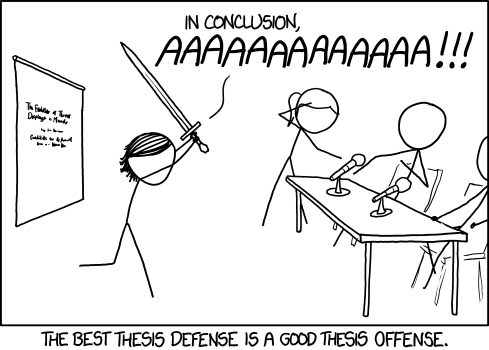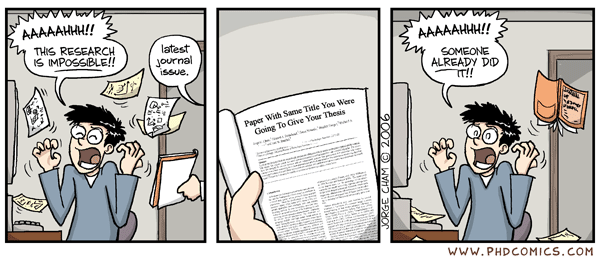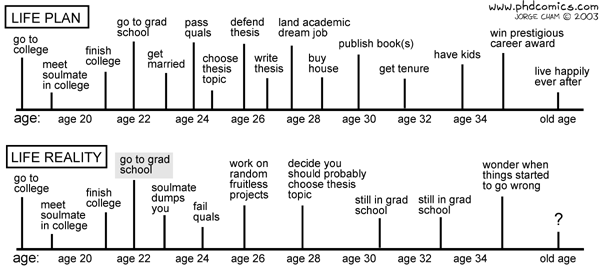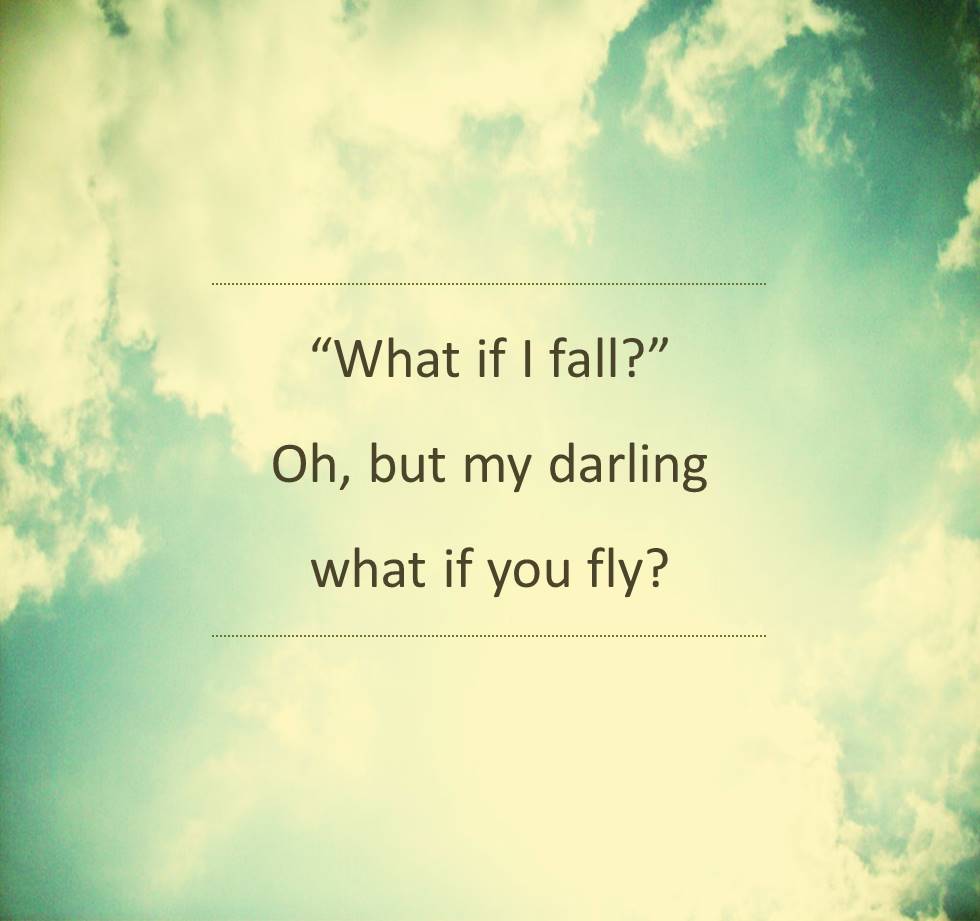What gives me the right to be here?
This is a question that I have asked myself MANY times since starting graduate school (and to be honest, even before that). I mean, seriously, at some point people will start to figure out that I don’t actually know what I’m doing. Why am I allowed to continue to go through the motions of this academia business when there are truly smart people all around me who are infinitely more productive and accomplished? I am, after all, just a fraud. I am only an impostor in this school.
If this thought cycle seems familiar, you too may be suffering from something called Impostor Syndrome. According to the American Psychological Association, although Impostor Syndrome isn’t found in the Diagnostic and Statistical Manual of Mental Disorders (DSM), it is a very real form of intellectual self-doubt that is often accompanied by anxiety and depression (Weir, 2013). It is more common among people who are starting a new endeavour, which means that graduate students, like us, are particularly susceptible (Weir, 2013).
Before we continue exploring Impostor Syndrome, please note: it is also important to recognize that graduate school can be a really stressful time. If you are feeling overwhelmed, anxious, or depressed, please reach out for help. Nipissing has counselling available to students who are struggling or even just need to talk. This is a free service and available online for students who are studying from a distance.
Here’s the thing: each of us is researching something unique. Inevitably, we will become experts in our respective fields. So how do we overcome these feelings of being an impostor?
This is one idea:
But in all seriousness, overcoming impostor syndrome takes time. You need to challenge the negative thoughts and misconceptions that you have about your work and yourself. It might even be beneficial to seek help from someone (psychologist, etc.) who can help you identify cognitive distortions and engage in cognitive restructuring to correct them.
The University of Waterloo published a helpful online guide for Graduate Students regarding Impostor Syndrome. In it, they suggest various strategies that might help students overcome these feelings. These include:
| Strategy | Description |
| Break the silence | Speak out about your feelings. Knowing there is a name for these feelings and that other people suffer from them can be very reassuring. |
| Separate feelings from fact | Everyone feels stupid from time to time. Just because you feel it doesn’t mean you are. |
| Recognize when it’s normal to feel fraudulent | When something is new to you, you may feel like you don’t fit in. These feelings are natural response for any novice. |
| Accentuate the positive | Don’t obsess over everything. Do a great job when it is important, don’t persevere over routine tasks. |
| Develop a new response to failure and mistake making | Learn from your mistakes and move on. Don’t dwell on what has happened in the past. |
| Right the rules | Don’t feel like you always need to know the correct answer. Recognize that you have just as much right as the next person to make a mistake or ask for help. |
| Develop a new script | Rewrite your mental script from “I am an impostor” to “I may not know all the answers but I am smart enough to figure it out.” |
| Visualize success | Instead of thinking of worst case scenarios, imagine yourself conducting an excellent presentation or answering questions with the correct reply. |
| Reward yourself | Learn to pat yourself on the back when you deserve it. Don’t hide from validation! |
| Fake it ‘til you make it | Take a chance and “wing it;” this is not a sign of ineptness, but rather a sign that you are intelligent and able to rise to a challenge. |
As I move through this process of graduate school (and let me be the first to say that I am by no means an expert – I am just another student feeling my way through this academic venture, hoping to emerge on the other side relatively unscathed), I am continually learning. I am learning how to take chances, how to recognize my limits, and how to be proud of my accomplishments and abilities. Every once in a while, I catch myself reflecting and I think, “How cool is it that I am here right now, doing this?” I still have moments where I feel like a fraud or like I shouldn’t be here. In those moments, I remember a line from one of my favourite T.V. shows (the West Wing):
Act as if ye have faith and faith shall be given to you. Put another way, fake it ‘til you make it.
I think I can do that.
We are not alone in this. What are your experiences?
If you’d like to read more about Impostor Syndrome, feel free to check out these great links!
University of Waterloo. (n.d.). Impostor phenomenon and graduate students.
Weir, K. (2013). Feeling like a fraud. American Psychological Association. Retrieved from: http://www.apa.org/gradpsych/2013/11/fraud.aspx
Zellner, A. (2011). Banishing impostor syndrome. Retrieved from: http://www.gradhacker.org/2011/09/02/banishing-impostor-syndrome/
Today’s blog post is courtesy of Catherine Giroux, a second year Master of Education student at Nipissing University. Huge thanks to Catherine for writing about this incredibly relevant issue that can affect so many students at the graduate level.







